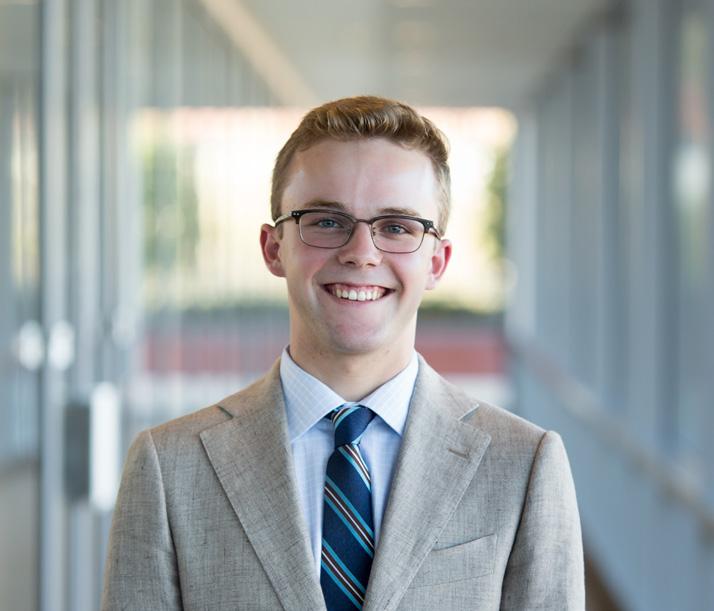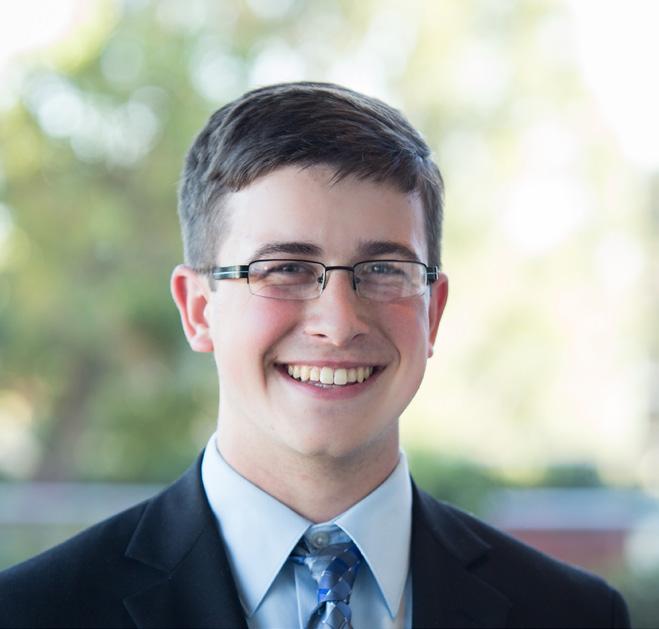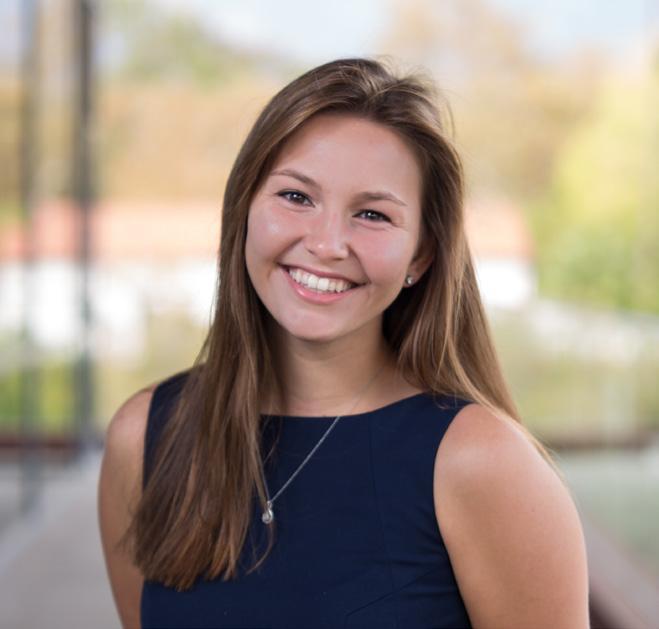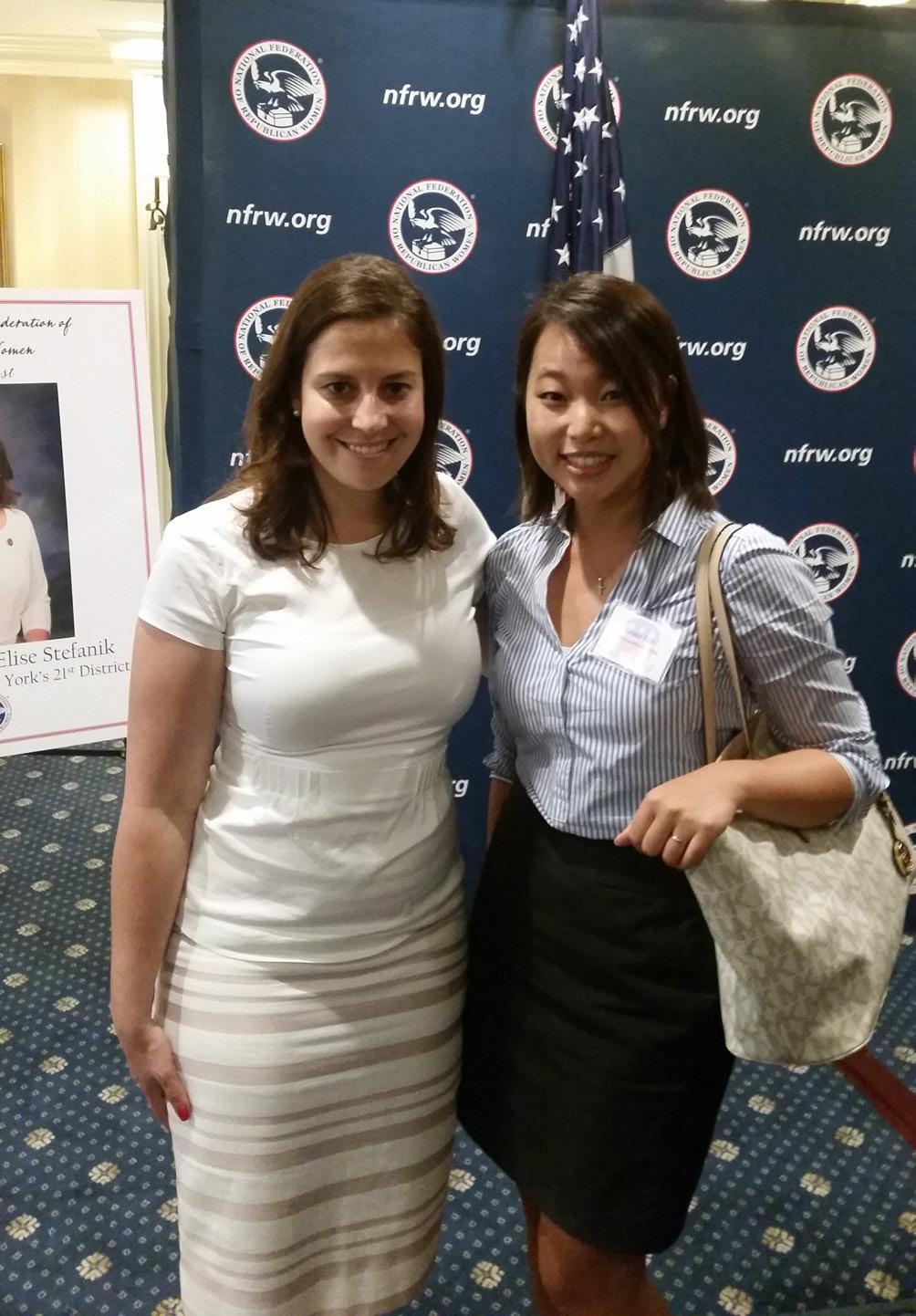THE ROSE REVIEW
Volume XXI | Issue 1 |


Volume XXI | Issue 1 |

Andrew E. Busch, PhD
Since the last Rose Review, the students and staff of the Rose Institute have continued working hard to produce high-quality research and to inform the public.
Our most important task at the beginning of the Fall semester was to hire the next cohort of Rose students to carry the Institute’s banner forward. Approximately 75 students applied, 40 were chosen for group interviews, and 20 were interviewed individually. In the end, six freshmen and five sophomores were selected. They have already begun intensive New Hire Training, and they have already made a positive impression. We are all looking forward to working with them over the next several years.
The Rose Institute has also continued important ongoing projects, including the Kosmont-Rose Institute Cost of Doing Business Survey, the RoseMiller Initiative Database, and the Southern California Almanac. We have also continued work on the Burnweit Database of California
legislators, and hope that it will be ready for unveiling soon.
We have added new projects to our workload, as well. With the assistance of Board of Governors member Bill Fujioka, the Institute won a contract to perform a comparative fee study for the City of Covina. That project was nearing completion as this article went to print. After completion of the Three Strikes and national crime funnel projects, the Institute is preparing to take on some new criminal justice projects in cooperation with Professors Joe Bessette (CMC) and Jennifer Walsh (Azusa Pacific). In coordination with CGU Prof. Jean Schroedel, the Rose Institute will be starting an extensive survey of county election officials in states west of the Mississippi, funded by a CGU Blais Challenge Grant. The project will seek to gauge the attitudes of county election officials toward both ballot access and ballot security reforms. We hope as well to launch a series of infographics on topics of state and local
government, and are looking forward to other projects on the horizon, such as an examination of key federalism issues in the 2016 presidential election.
Our speaker series continues, with California Legislative Analyst Mac Taylor coming for an Athenaeum talk on October 26 and attorney Chris Skinnell ’99 and Prof. Ken Miller discussing the question “Taking Voter Equality Seriously: What Does One Person One Vote Really Mean?” on November 17. The Institute also hosted its second fiscal analysis workshop run by former student manager Ian Rudge at the end of August.
Not least, the Rose Institute has carried on its role in the Inland Empire Center (IEC), the joint project run with the Lowe Institute of Political Economy. The sixth annual Inland
Empire Economic Forecast Conference, held in Ontario, was organized with UCLA and Citizens Business Bank on September 24, drawing an audience of around 550. In conjunction with the conference, the IEC, spearheaded by the Rose Institute, published another edition of the Inland Empire Outlook. A policy-oriented IEC conference examining the future of the Ontario Airport is scheduled for March 4, 2016. It will be held at facilities on the CGU campus in Claremont.
The end of this semester will mark the completion of my fifth year as Director of the Rose Institute. I can say it has truly been an honor and a privilege to work alongside the students, staff, and Board of Governors as we have reached for new accomplishments to add to the gloried history of the Rose.
Each year, a new class of Rose students joins our community, ranks of our juniors leave to explore new cities across the globe, and the rising seniors are tasked with driving the institute forward. This semester, the entire Rose junior class is abroad, and the sophomores have been charged with leading many of the large projects. So far they have worked extremely hard to complete a fee study for the City of Covina, surveying six neighboring cities to help the city determine optimal fee structuring. Thanks to their hard work, the Rose was able to complete the project on a very tight deadline, and I’m excited to see what we can all accomplish throughout the year.
During the summer, some Rose students stayed in California, while others traveled as far as Asia. Francesca Hidalgo-Wohlleben ’17 and Ben Fusek ’17 spent their summer
working in Ulaanbaatar, Mongolia, working to direct investment into mining, construction, and development in the country to encourage economic expansion. A little closer to home, Charlotte Bailey ’16 interned with Randle Communications, a political public relations agency based in Sacramento. Student Managers Manav Kohli ’16 and Nina Kamath ’16 were in the Bay Area, working in a wealth management startup and an economic, financial and strategy consulting firm, respectively.
Although the Rose sometimes hires students to work over the summer, this year we did not host any research assistants through the break. However, we enjoyed hiring one of our largest classes in recent history, accepting six freshman and five sophomores. Three of the new sophomores are transfer students, joining Claremont from George Washington

University, the University of Michigan, and the University of Denver.
Despite only joining the Rose Institute in mid-September, the new hire class has already been put to work. New Hire Manager, Jessica Jin ’16, has organized an exceptional training program for the students, including lectures on California politics by Dr. Miller, as well as personal research projects. Furthermore, the students have been working closely with the communications team to follow political news, publish blog posts, and share relevant stories. Zach Wong ’19 and Varun Dhananjaya ’18 have even already begun working on other projects, examining data collected for the Contract Cities project and assisting Dr. Miller with expanding the Burnweit database.
Alas, the Kosmont Survey marches on, and answering machines of city government offices across the West Coast are graced with the eager voices of Rose students. Hannah Oh ’16, the Kosmont Project Manager, has already trained the new hires in the data collection process,
tasking each lucky new hire with 17 cities to update the report.
Besides work on ongoing and new projects, the institutional teams at the Rose Institute have enhanced website security, created a stronger pipeline for publishing material, and expanded the reach of Institute research. After the website was compromised at the beginning of the year, the technology team worked with Claremont McKenna’s internet technology services department to reduce the vulnerabilities within the site and implement a stronger user authentication portal. In addition, the team is planning on integrating a safer payment portal as a platform for selling the Kosmont Survey Alongside the technology team’s efforts, the communications team has worked to train the new hires and regularly publish material via social media channels.
With the success of the Covina Fee Study Project, the 2015-2016 year is off to a great start. Rose sophomores have even risen to the challenge of leading large projects such as the Southern California Almanac and the MillerRose Initiative Database, and will have the opportunity to grow as both researchers and leaders. Of course, the Institute would fall apart without the leading seniors as well. Associate Student Manager Nina Kamath ’16, and New Hire Manager Jessica Jin ’16, have played an integral part in the Institute’s success since last spring. With the return of our juniors in the spring, I cannot wait to see the new heights we will reach this year.
Marionette Moore is also indispensable, ensuring the Institute remains organized, wellsupplied, and runs smoothly. We cannot be more thankful for the opportunity to work alongside these talented supervisors. With so much activity and opportunity at the Rose, we look forward to a busy, productive, and fun year.

On Thursday, October 24, the Inland Empire Center for Economics and Public Policy (IEC), in partnership with the UCLA Anderson School of Management, hosted the sixth CMC-UCLA Inland Empire Economic Forecast Conference at Citizens Business Bank Arena in Ontario. Together, the Rose Institute and the Lowe Institute of Political Economy form the Inland Empire Center.
In preparation for the conference, the Rose Institute published the Fall 2015 volume of the Inland Empire Outlook, which included two articles from Rose Institute research assistants. The featured article, written by Student Manager Manav Kohli ’16, detailed the effects of the 2008 Recession on Ontario International Airport, which
experienced significant declines in passenger and commercial traffic that are only just starting to rebound. The article also outlined the longawaited agreement by the City of Los Angeles to sell back the airport to the City of Ontario for a total of $190M over a 10-year period.
The second article, written by Francesca Hidalgo-Wohlleben ’17, looked at the many roles of the March Air Reserve Base since its establishment at the onset of the First World War. In addition to being home to the largest air mobility wing of the 4th Air Force, March ARB also includes units from the Army Reserve, Navy Reserve, Marine Corps Reserve and the California Air National Guard. The base was instrumental in training pilots and personnel that would go on to fight in World War II, Korean War, and the Vietnam Conflict.
The City of Covina retained the Rose Institute to study fees charged by six neighboring cities: Azusa, Baldwin Park, Glendora, Monrovia, San Dimas, and West Covina. The Rose study is a follow-up to a comprehensive study of the cost of providing services by Willdan Financial Services. Willdan estimated the cost of each service based on the full cost of providing city services, including direct salaries and benefits of city staff, direct departmental costs, and indirect costs from central service support. Willdan presented its findings in the City of Covina Comprehensive User Fee Study Report, dated June 2, 2015. Along with detailed information on how the cost of each service was calculated, the Willdan report lists the current fee charged and the suggested fee. The suggested fee is generally based on 100% cost recovery.
For each of the services identified by Willdan, the Rose Institute surveyed the six neighboring cities to determine whether or not each city charges for that service and document any fees charged.
Rose Institute researchers collected data through websites, emails, phone calls, and trips to the various city halls. Each research assistant focused on a specific set of departments to ensure consistency throughout the process. Researchers found the project rewarding, as it required substantial direct engagement with local governments in order to obtain the information. After all the information was gathered, students fact-checked and highlighted interesting points in the data. The Rose then assembled a report that included all of the data collected as well as specific information regarding each department. Overall, the Covina user fee study
provided researchers with an understanding of city user fees and the diverse array of services that cities provide to constituents. We are grateful to the City of Covina for the project. We would like to extend a special thanks to Rose Board of Governors member Bill Fujioka for his involvement throughout the process.
Before school had even started, Rose students hit the ground running with a Fiscal Analysis Workshop led by our very own Rose alumnus, Ian Rudge ’03. Six students sacrificed their last week of summer to gather on the fourth floor of the Kravis Center to better understand state and local government finance and analytics.
The main focuses of the workshop were understanding the authority and structures of government, financing and inflows, the budget process, and public employee pensions. Mr. Rudge also welcomed two guest speakers: Mr. Steve Danley, the Chief Human Resources Officer in the County of Orange, and Dr. Steven B. Frates, Director of Research for the Davenport Institute at Pepperdine University. The guest speakers provided a unique opportunity in an intimate setting for our students to converse freely and ask questions on state and local government fiscal topics. With supplemental reading, group discussions, Excel priming, and daily lectures, the students were then able to produce and present their own fiscal analysis exercises by the end of the week.
One group used crime data to cross reference crime rates with public safety spending in California. The second group used data from the California State Controller’s office to
analyze public employee spending compared to the respective city’s per capita personal incomes for selected cities.
The fiscal analysis workshop is part of a broader initiative. Mr. Rudge worked with three students last semester on a research project analyzing newly available data from the California State Controller’s Office. Two of the three sections of this report are completed. One analyzes police expenditurees and crime rates, while the other examines how expenditures vary based on affluence and size of cities. We expect to finish the project this semester.
The Rose Institute Communications Team promotes Rose research and the Rose Report to the CMC community, alumni, and the press through three different avenues. We use MailChimp, an e-mail newsletter tool, to promote speaker events and recent publications as well as to give updates on Rose research to the entire student body, interested professors, and the press. We also started a new bimonthly “Rose Institute Alumni Newsletter” to inform Rose alumni of new Institute research and to increase student-alumni communication, such as alumni speaking to current Rose students through a Career Roundtable. Second, we use a social media scheduling application called Buffer to schedule social media posts on Facebook, Twitter, and LinkedIn. With these efforts, we were able to enhance our social media presence substantially with a 700% and 100% increase in engagement on Facebook and Twitter, respectively. Finally, to reach out to the CMC community at large, we promote research and events through CMC’s Public Affairs Office, with specific features in the CMC Currents E-Newsletter. This newsletter is sent to supporters and alumni of the College, so it is an excellent tool
to reach a broad audience.
An important and successful aspect of the Rose’s communications strategy is a newly implemented training program for new hires. Every week, the Communications Team trains one new Research Assistant on the ins and outs of the Rose’s communications strategy. The new hires focus primarily on finding newsworthy content to promote on social media and are encouraged to give suggestions to improve the communications strategy. The training program brings fresh ideas to the Rose’s communications strategy, trains students on how to best promote Rose research, and determines the interest in communication for individual new hires. This program has brought new ideas into the fold. For instance, Ellen Lempres ’18 suggested during her training that the Rose could look into a service called CISION to help develop press contacts and lists.
Looking to the future, the Communications Team is hoping to track metrics on social media more thoroughly in order to discern optimal times to post and share content. In collaboration with the Rose Content Team, the Communications Team is also looking to create new infographics, especially with interactive features, to visualize and present Rose research in easy-to-understand graphics.




Varun Dhananjaya is a sophomore from Bellevue, Washington, dual majoring in Computer Science and Economics. At the Rose, Varun currently manages the Burnweit Database Project and collects data for the Kosmont Survey. Outside of the Rose, Varun is a part of CMC’s Model UN traveling team and works as a computer science tutor. When he’s not working, you can find him cheering on his Seahawks, expanding his eclectic musical tastes, or playing basketball. Varun spent last summer as an intern at Costco Wholesale.
Nick Fedorochko is a freshman from Bridgewater, New Jersey, planning to dual major in economics and government. At the Rose Institute, Nick is working on the New Hire Research Project and collaborating with other new hires on the Kosmont Survey. Outside of the Rose he is involved with CMC Mock Trial and ASCMC. Nick also plays the upright bass, loves to ski, and has a mild caffeine addiction. While he loves the California sun, he misses indulging in authentic New Jersey porkroll egg and cheese breakfast sandwiches.
Shaneli Jain is a sophomore from La Cañada, California, majoring in Science & Management. Her passion for government originated in high school where she consistently participated in student government and served as the student body president. She enjoys traveling with her family, and in her free time, you can find her running, dancing, or eating chocolate. Over the summer, Shaneli worked as a healthcare analyst for Senator Dianne Feinstein in Washington D.C. She plans to pursue health policy and attend medical school.




Ellen Lempres is a sophomore from Berkeley, California, majoring in government at CMC. Ellen spent her freshman year of college at George Washington University in Washington, D.C. During her time at GW, she interned at several political organizations as well as at C-SPAN. After gaining experience in D.C, Ellen decided to make the move back to California to study government at Claremont McKenna. She is very excited to be able to continue pursuing her political interest at the Rose and CMC. Outside of the Rose, Ellen can be found enjoying the California sun.
Alec Lopata is a freshman from Deerfield, Illinois (just think Chicago, it is easier!), planning on majoring in Government. Before joining the Rose, Alec worked on two local campaigns, for state senate and U.S. Congress, and in his state senator’s district office. He also loved doing fundraising for the American Cancer Society. When he is procrastinating on his work, you will find him re-watching West Wing, playing FIFA with friends, or trying to find the best food around the 5Cs.
Bryn Miller is a freshman from Sudbury, Massachusetts planning to major in International Relations with a focus on Spanish and Arabic. She is interested in increasing the accessibility of information about politics and the news. On campus, she is planning to get involved with the CMC Forum and run for the CMS track team. When she’s not working, you can probably find her at the Scripps pool.
Kate Ridenour is a sophomore from the greater Chicago area, dual majoring in Government and Economics. In high school, she was involved with student government, Model UN, and the Youth and Government program. At the Rose she has compiled data for the Kosmont Cost of Doing Business survey, and outside of the Rose she competes on the Model UN team, works at CMC’s Bike Shop, and serves as a student senator. In her free time, Kate enjoys training for triathlons, reading The Week magazine, and following runway fashion shows.




Anne Rosett is a sophomore from Claremont, California, majoring in Environment, Economics, and Politics (EEP) at CMC. She is particularly interested in natural resource economics, environmental policy, and conservation. Prior to joining the Rose staff, Anne participated in research in the geophysics department at the University of Michigan and at the University of Michigan Biological Station. Anne’s other interests include backpacking, writing, playing chess, and drinking lots of coffee.
Skip Wiltshire-Gordon is a freshman from leafy Wilmette, Illinois, interested in studying Government at CMC. In high school, he was involved in municipal and state politics, working on several different political campaigns over two election cycles. Skip spent last summer working at the district office of his Congresswoman, performing constituent services for fellow residents of his district. In his free time, Skip enjoys reading political news from The New York Times, tossing around a frisbee, and honing his table tennis skills.
Zachary Wong is a freshman from Chicago, Illinois and is interested in majoring in Politics, Philosophy, and Economics at CMC. His interest in government stems from his desire to create positive, substantive change, and he felt that the Rose Institute was the place through which he could best do this. Outside of the Rose, Zachary can be found halfway up a mountain on his bike, debating with the Model UN team, or trying to take “sick pics” in any number of places.
Lindsay Burton is a freshman from the local area of Redlands, California. She plans to dual major in Government and International Relations. When she is not training and working on her latest project as a new Research Assistant, Lindsay is an active student-cadet of the United States Army ROTC.

This past summer I interned for the Washington Policy Center, a bipartisan think tank in Seattle, Washington. As a summer intern I had the opportunity to work closely alongside the education policy research center director. With her help, I published a policy note on the Vergara v. California lawsuit. I also assisted at various summer events and helped the communications team improve WPC’s media presence. One of the highlights was definitely meeting Senator Marco Rubio at a fundraiser hosted by a WPC’s board member.
During my summer internship, I worked with the Senate Budget Committee to create a policy memorandum for Senator Enzi, who serves as the committee’s Chairman. Over the course of six weeks, I explored budget process reform proposals by interviewing over a dozen experts from various organizations, including the Congressional Research Service, Congressional Budget Office, Bipartisan Policy Center, Heritage Foundation, among other think tanks. After submitting the memorandum, I presented the top five reform proposals to the Senate Budget Committee staff and discussed the proposals with Chairman Enzi. Through this experience, not only was I able to gain in-depth knowledge of the budget process, but I was also able to work on a substantial research project that further strengthened my writing, analysis, and presentation skills that I started developing at the Rose Institute during my sophomore year. I would like to thank the Rose Institute and the Board of Governors for this valuable summer experience, as well as their continuous institutional support.


This summer I interned in Washington, D.C. at the American Enterprise Institute’s Government Relations Department. The Department’s mission is to promote AEI’s scholarship among government officials on Capitol Hill, federal agencies, and the White House. One of my main projects included analyzing scholars’ research to compile policy recommendations for Capitol Hill staff on welfare, education, and economic policy. I also conducted research on upcoming congressional committee hearings and assisted with AEI events on the Hill and in AEI’s headquarters. I created and maintained contact lists of congressional committee and personal member staff, so the team may create more opportunities for AEI scholars to have an impact on congressional policymaking. I also had the opportunity to attend various events, meetings, and hearings on the Hill.
Before I began my internship, I participated in AEI’s Summer Honors Program, a two week public policy and career development opportunity for undergraduate students. We discussed policy topics in small seminars, heard from policymakers and business leaders during daily lunch sessions, and met many leaders in the policy world during events and receptions.
This past summer, I worked for the Office of the Arizona Governor as a political operations intern. My main duties included conducting research on relevant political issues, drafting correspondence, and providing administrative support. During the internship, I compiled profiles of the biographical information, policy agendas, and political successes of each governor in the nation. I also collected campaign finance data for all of the most recent gubernatorial elections. Additionally, I also compiled and organized biographical information for each delegate of the Republican National Committee.
Interacting with the governor’s senior staff gave me a fundamental understanding of how the executive branch of Arizona operates. During my time at the office, I also participated in educational workshops for staff members regarding how the governor’s office participates in the state’s legislative process and how it furthers the governor’s legislative agenda.


Student Staff
Rose Review Staff
Wesley Edwards ’18
Katie Hill ’18
Jessica Jin ’16
Nina Kamath ’16
Student Manager
Manav Kohli ’16
Associate Student Manager
Nina Kamath ’16
New Hire Manager
Jessica Jin ’16

This year, the Rose Institute held its first ever, Institute-wide retreat at Joshua Tree National Park. Activities included a sunrise hike, rock climbing, and fun with friends!
We look forward to more Institute bonding events in the future. Big thanks to our alumni for their support!
Institute Staff Director
Andrew E. Busch, PhD
Associate Director
Ken Miller, JD, PhD
Assistant Director
Bipasa Nadon, JD
Administrative Assistant Marionette Moore Fellow
Douglas Johnson, MBA
The Rose Institute pursues the complementary missions of conducting and publishing research on state and local government and providing academic opportunities for Claremont McKenna College students. www.roseinstitute.org 2015 ROSE RETREAT